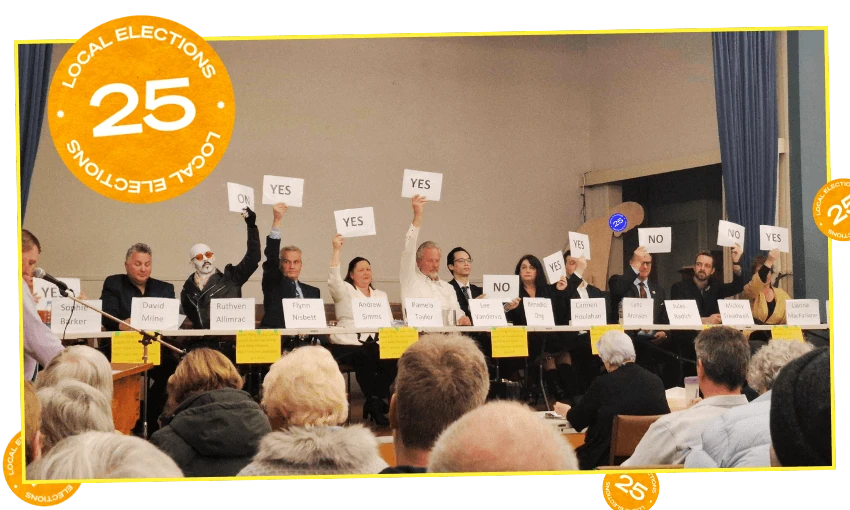By Sajid Salamat
Copyright dailytimes

Published on: September 17, 2025 2:26 AM
Pakistan’s new Anti-Dumping Duties (Amendment) Act, signed into law in 2025 under President Asif Ali Zardari, is being presented as legislation to protect domestic industries and provide legal clarity. But beneath the surface, it carries the markings of a policy deliberately at odds with the spirit of the Pak-China relationship. By imposing sweeping anti-dumping duties on Chinese goods while selectively exempting Chinese grant-funded high-profile projects retroactively, the law undermines economic certainty, raises project costs, and frays diplomatic trust.
The Act retroactively exempts Chinese grant-funded projects-from July 1, 2020 onward-from anti-dumping duties. This applies to landmark undertakings such as the Pak-China Friendship Hospital and the New Gwadar International Airport.
Also, Pakistan’s National Tariff Commission (NTC) has imposed high duties on various Chinese imports: for example, galvanised steel coils and sheets now face anti-dumping duties ranging from 6.09% to 40.47%. Polystyrene imports from China were recently hit with a 21% duty.
Official statements make explicit that the purpose of the law is “to provide legal clarity regarding the imposition of anti-dumping duties on projects funded by Chinese grants.”
Diplomatic relations thrive on good faith, consistency, and mutual benefit
On the face of it, clarity is a virtue. But when clarity means “we will exempt only the big visible Chinese projects, and impose high duties on everything else tied to China,” then clarity itself becomes a weapon of selective protectionism. This dual-track approach penalises much of China’s commercial outreach to Pakistan-supplies, intermediates, raw materials-while favouring just the headline projects. For example, even though the grants for Gwadar Airport or Pak-China Friendship Hospital are now exempt, many suppliers of steel, tiles, machinery, or components-most of them based in China-are being charged steep duties. These costs don’t stay in the paperwork; they are passed on through increased bids, delays, renegotiations, and cost overruns. Contractors will build the cost of risk into their quotes, rendering Pakistani infrastructure more expensive and potentially delaying timelines.
Trade distortion and deficits:
Pakistan already runs a large trade deficit with China. Imposing high anti-dumping duties on widely used imports (steel, polystyrene, etc.) will reduce imports in those categories-but not necessarily reduce the deficit by much. Why? Because those goods are inputs to broader production: raising their costs raises the prices of finished goods, reduces competitiveness, and therefore may hinder exports.
Inflationary pressures:
Take polystyrene: with a 21% duty added, products using it rise in cost, both for industry and consumers. Steel duties of up to 40% on certain Chinese steel goods inflate the cost of basic construction materials. Pakistan, already under inflationary stress, will feel this keenly.
Project delays and investment risk:
Chinese firms engaging in Pakistan will now face greater uncertainty-not simply from high duties-but from fear of changing laws, retroactive exemptions, or burdensome investigations. Even though the law seeks to protect Chinese-grant projects, many associated contracts and suppliers will suffer. This risk discourages some future investment.
Erosion of strategic trust:
Diplomatic relations thrive on good faith, consistency, and mutual benefit. China has placed great store by CPEC and its “win-win” narrative. When Pakistan passes a law that hits large swathes of Chinese industry while retroactively sparing only a few projects, it suggests that Pakistan is trying to have it both ways-courting Chinese investment while courting domestic political advantage via protectionism. That is a fine dance-and one easy to misstep.
It is striking that while Pakistani sources describe the amendment as “providing legal clarity” for Chinese grant-funded projects, there are few public statements from Beijing or Chinese firms condemning it-or demanding changes. But subtle signals matter. For instance, business communities have already complained about the contradiction in policy: “On the one hand, the government claims it will gradually reduce duties, while on the other, the NTC is creating hurdles for importers and exporters. This contradictory approach risks pushing Pakistan’s economy further into distress,” a concerned importer said of the new polystyrene duties.
Chinese media commentary on past anti-dumping moves in Pakistan has emphasised that such measures are “economic cases, rather than political disputes,” yet warned that overuse of protectionism can hurt the very industrial cooperation upon which such partnerships are built.
So is it Sabotage or Strategy?
Is this a deliberate sabotage of Pak-China relations, or simply a poorly conceived strategy of protectionism? Perhaps both. The selective exemptions combined with broad duties suggest that Pakistan’s government is attempting a balancing act-protecting domestic political constituencies while maintaining some supposedly friendly face toward China. But in so doing, it risks sending China the message that its long-term reliability as a partner is questionable. If policies meant to safeguard Pakistan’s industry end up undercutting Chinese firms, raising costs in major Chinese loans or grants, and making joint projects less viable, then the question becomes not whether Pakistan values China, but whether it trusts that China will continue to invest in Pakistan under such uncertain conditions.
For the sake of both economies and future strategic cooperation, Pakistan should reconsider:
Removing retroactive elements, making sure all stakeholders-Chinese firms, Pakistani contractors, local manufacturers-understand rules in advance.Phasing in duties more gradually, especially for sectors deeply reliant on Chinese input. Engaging in prior consultation with Beijing over sectors most affected, to avoid diplomatic friction. Ensuring that domestic political gains do not come at the cost of long-term foreign investment, trade, and strategic goodwill. If Pakistan wants to remain China’s partner, it must act in ways that are predictable, fair, and mutually beneficial. Otherwise, policies that appear protective today may inflict damage on the very foundation of Pak-China cooperation for many years to come.
The writer is Foreign Research Associate, Centre of Excellence, China Pakistan Economic Corridor, Islamabad.



